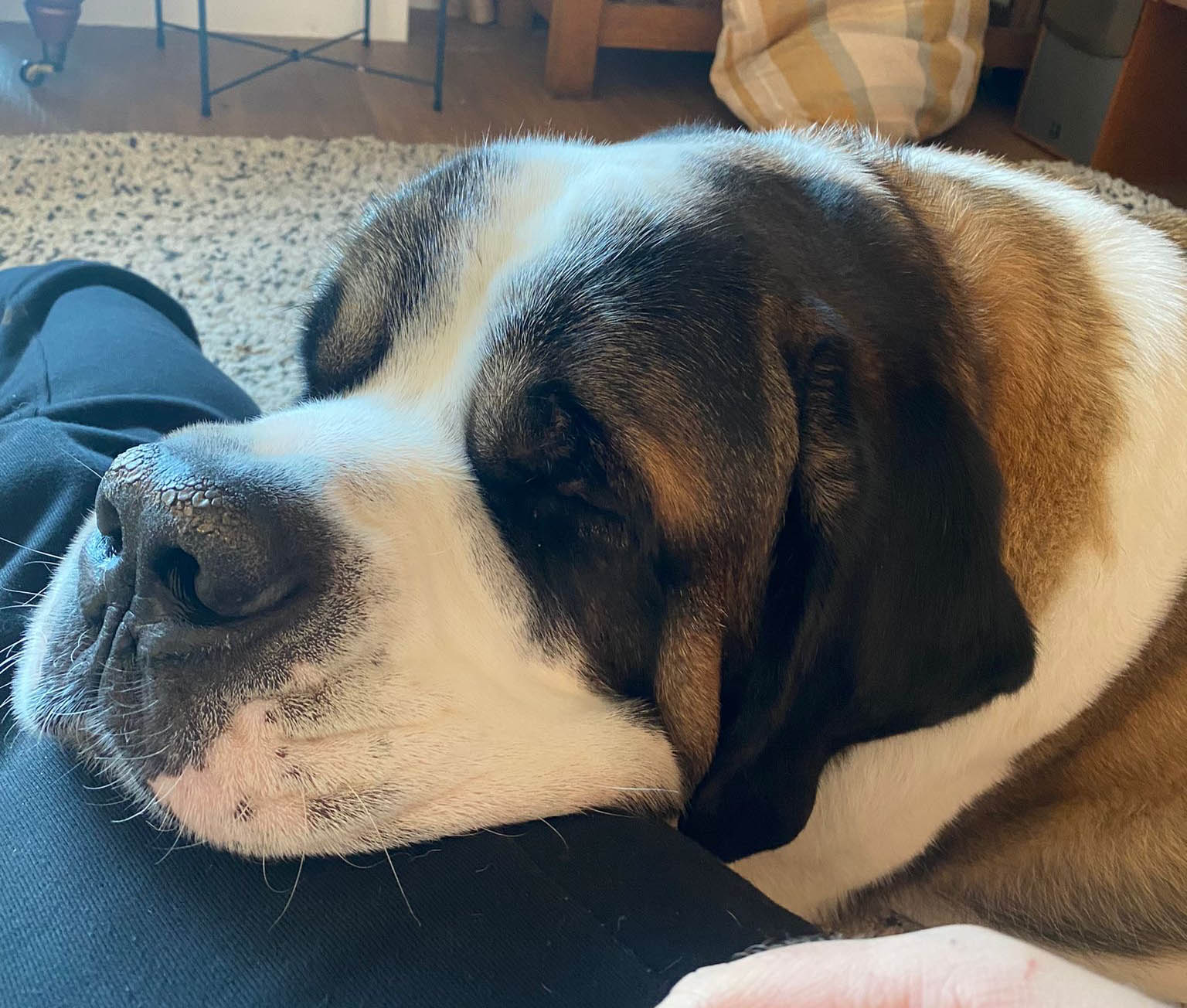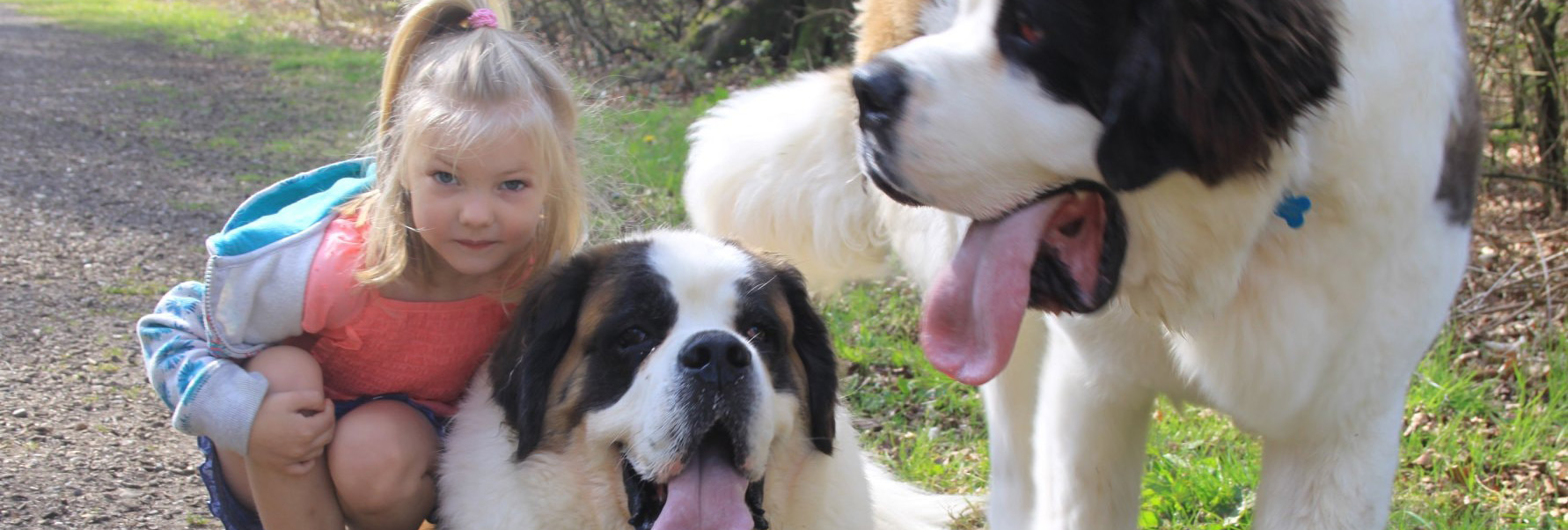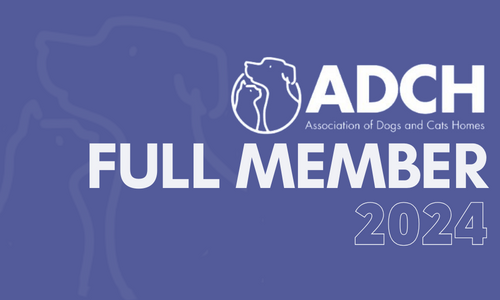Below are a few Adoption case studies
If you would like to be considered to adopt some of our amazing dogs then please download the adoption application form below
Introduction
Saving Saints recently managed a complex and heartwarming case involving a St Bernard named Reggie. This detailed case study explores the intricacies of Reggie's surrender, rehabilitation, and successful rehoming, while highlighting critical issues in dog breeding and adoption.

Background
Reggie, a pedigree St Bernard, was surrendered to Saving Saints due to distressing circumstances faced by his previous owners who could no longer provide for him. Further complicating his situation, Reggie was under a return-to-breeder contract, but when the breeder was approached, they cited space constraints as a reason for not being able to take Reggie back immediately.
Quote from Saving Saints
"Our first approach was always to honour the return-to-breeder contract. However, Reggie's situation quickly became more complex than anticipated."

Challenges
The journey of rehoming Reggie was fraught with challenges. Initially rehomed, Reggie was returned within a week after an incident where he bit an intoxicated visitor, a situation contrary to the advised precaution of no visitors for the initial eight weeks. Despite this incident, the breeder refused to take Reggie back, citing insurance issues, and even recommended euthanasia, while refusing any financial assistance.
Giant Breed Dog Rescue Insights:
- Large breed dogs like St Bernards have a higher likelihood of being surrendered due to their size and special needs compared to smaller dog breeds.
- Behavioural issues, often stemming from anxiety or inappropriate human interaction, are a common reason for dogs to be returned to a shelter
Intervention and Outcome
Saving Saints undertook a comprehensive reassessment of Reggie, considering the context of his behaviour. Their decision against euthanasia was based on the belief that with appropriate behavioural support, Reggie was rehomeable.

Success Story
Reggie was successfully rehomed to a family fully informed of his history. They committed to working with him on his behavioural issues with the support from Saving Saints and our in-house behaviourist. Six months later, Saving Saints visited Reggie in his new home where he continues to flourish. His anxiety levels are at an all time low and he is slowly but surely making new friends in his local area. This is a testament that not every dog which displays unsavoury behaviour should be destined for euthanasia – we must do better as a society.
Quote from New Family:
"We understood Reggie's past and challenges. With guidance from Saving Saints, we've been able to provide him with a loving, understanding and stable home." “It pains us to think that if Saving Saints had not been there for Reggie, this lovable boy would have not been long destined for this world.”
Discussion
Reggie's case brings to light the ethical responsibilities of breeders and the challenges in the rescue and rehoming of giant breed dogs. It underscores the importance of support from breeders, especially in cases involving return-to-breeder contracts.
It also highlights some key questions;
- Return-to-Breeder Contracts: These should be a binding commitment, offering a fallback for dogs in need.
- Owner Education: Prospective dog owners must conduct extensive research and understand the specific needs and potential challenges of the breed.
- Following guidance: New owners, especially of rescue dogs must follow the prescribed guidance - it is there for a reason.
Conclusion
Reggie's experience with Saving Saints illustrates the meaningful work carried out by animal welfare organisations like Saving Saints.
Through Saving Saints' efforts, Reggie's story sheds light on the necessity of considering a dog's background and behaviour in its entirety. Their understanding of Reggie's actions as a response to his environment, rather than immediate judgement, underscores the need for patience and empathy in handling similar cases. This approach is particularly significant for larger breeds, where behaviours are often misinterpreted due to their size.
Furthermore, Reggie's journey is a reminder of the responsibilities that come with dog ownership. It's about more than just providing the basics; it's about a long-term commitment to understanding and meeting the dog’s needs, both physical and emotional. It also emphasises the importance of thorough research and preparedness for prospective dog owners, especially when considering breeds with specific requirements.
In essence, Reggie's successful rehoming is not just a happy ending to his story; it's an insightful example of what can be achieved with the right knowledge, understanding, and commitment. It serves as an encouragement for all involved in dog welfare to continue their invaluable work and for potential dog owners to fully embrace the responsibilities that come with bringing a dog into their home.



